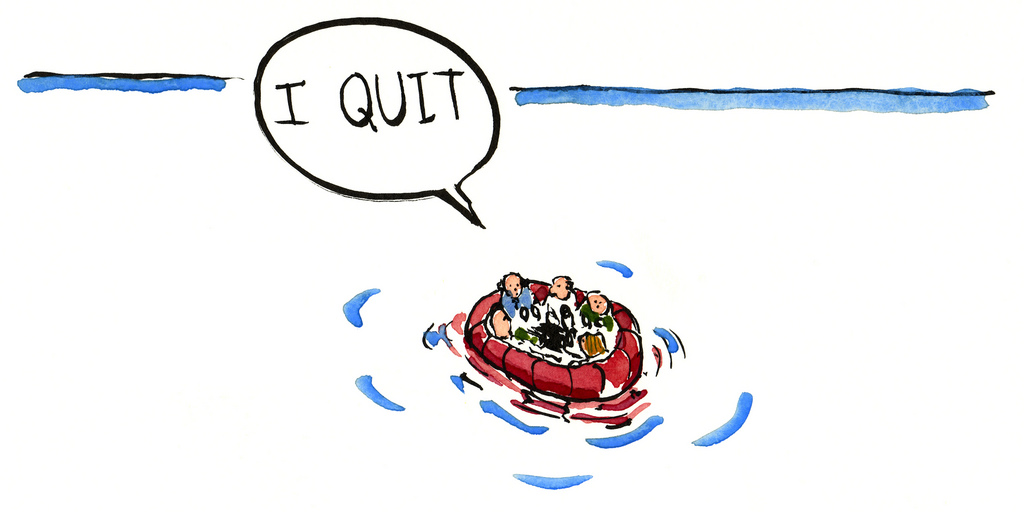This old cartoon came up on Reddit today. It's a thought-provoking illustration by Gavin Aung Than from ZenPencils.com. The content within the cartoon is by Chris Guillebeau, who is an award-winning author, conference organizer, and world traveler.
I've met Chris a couple of times over the years, he's a good person with inspiring messages. His book, The Art of Non-Conformity, was especially important to me. Chris chose freedom as his highest personal value and learned to construct a life around that choice.
I read The Art of Non-Conformity when I was working a job I was unhappy with. I specifically remember sitting in a Thai restaurant, reading and highlighting sections of it.
15 Life Lessons from The Art of Non-Conformity
- We tend to regret what we haven't done more than what we have.
- Since a lot of adults have not figured out what they really want, they naturally find it difficult to pass on the values of soul-searching to children.
- Create a "life list" or "bucket list" of anything and everything you'd like to accomplish before you die. Break it down into measurable goals.
- Fear is normal.
- Change can only come about when the pain of transition becomes less than the pain of accepting the status quo.
- If you're not happy with the way something is done, you don't have to accept it.
- Motivation comes in three forms: inspiration, education, and entertainment.
- You want to lift up your followers and improve their lives in a meaningful way.
- Say goodbye to unnecessary tasks, obligations, and expectations. Welcome in a wide range of other things that enrich your life.
- Ask two questions: "Why should I do this?" and "What will happen if I don't?"
- Saying no is critically important to seeing the terms of your life.
- Create a To-Stop-Doing List.
- Begin thinking about your legacy right now.
- Even highly individualistic goals, like writing a book or visiting every country in the world, can benefit greatly from the support of a small army of loyal partners.
- Let the world know you are looking for help.
The point of this blog is to help you too. Working on your own can be lonely. Your inner critic can shut you down with fear. It happens to me too.
Let's do this together.
Leave a comment with what you are working on. How can we help each other?






























